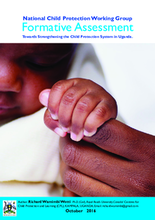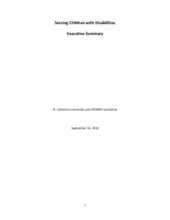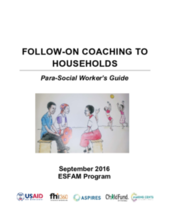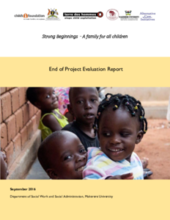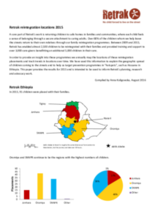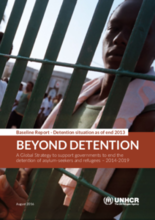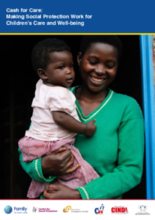Displaying 201 - 210 of 416
This qualitative study explored adolescent girls’ perspectives and programme needs as they transition from two institutions in Highfield, Harare, Zimbabwe.
This issue brief from the UNHCR highlights key messages from UNHCR in regards to family tracing and reunification. The brief outlines the importance of children growing up in a safe family environment and the positive impact this has on a child's psychological, cognitive and physical development. In the best case, alternative care is only required as an interim measure while family tracing is carried out and until the time when children can be reunited with parents or family members.This brief is part of a series developed by UNHCR which aims to guide field operations on key thematic child protection issues.
The Child Protection Working Group (CPWG) commissioned this assessment to assess the effectiveness of the CPWG, structural setup and work methods from 2012 to date in contributing to child protection systems strengthening in Uganda.
This summary examines the conditions children with disabilities face in Zambia. The summary asks if the quality of life for these children can be improved?
This Coaching Guide supports Para-Social Workers (PSWs) to provide households with targeted coaching to increase the adoption of new skills, practices, and knowledge key to child and family wellbeing.
Strong Beginnings (SB) was an 18-month project purposed to promote an alternative care model that places emphasis on family based care of children, improving the quality of care within child care institutions, build capacities of government and non-government agencies in implementing alternative care; generate evidence and promote learning.
This is a webinar that occurred on August 19 through the RISE Learning Network.
Each year Retrak maps the locations of family reintegration placements and tracks trends in locations over time. They have used this information to help them understand the geographic spread of children coming to the streets and to target prevention programmes on ‘’hotspots’’- places from which many children migrate to the streets.
Global Strategy – Beyond Detention 2014-2019 is a document released by UNHCR, which aims to support governments to end the detention of asylum-seekers and refugees.
Family for Every Child, in partnership with the Centre for Social Protection at the Institute for Development Studies, just announced the launch of its Cash for Care: Making Social Protection Work for Children’s Care and Well-being Report.


